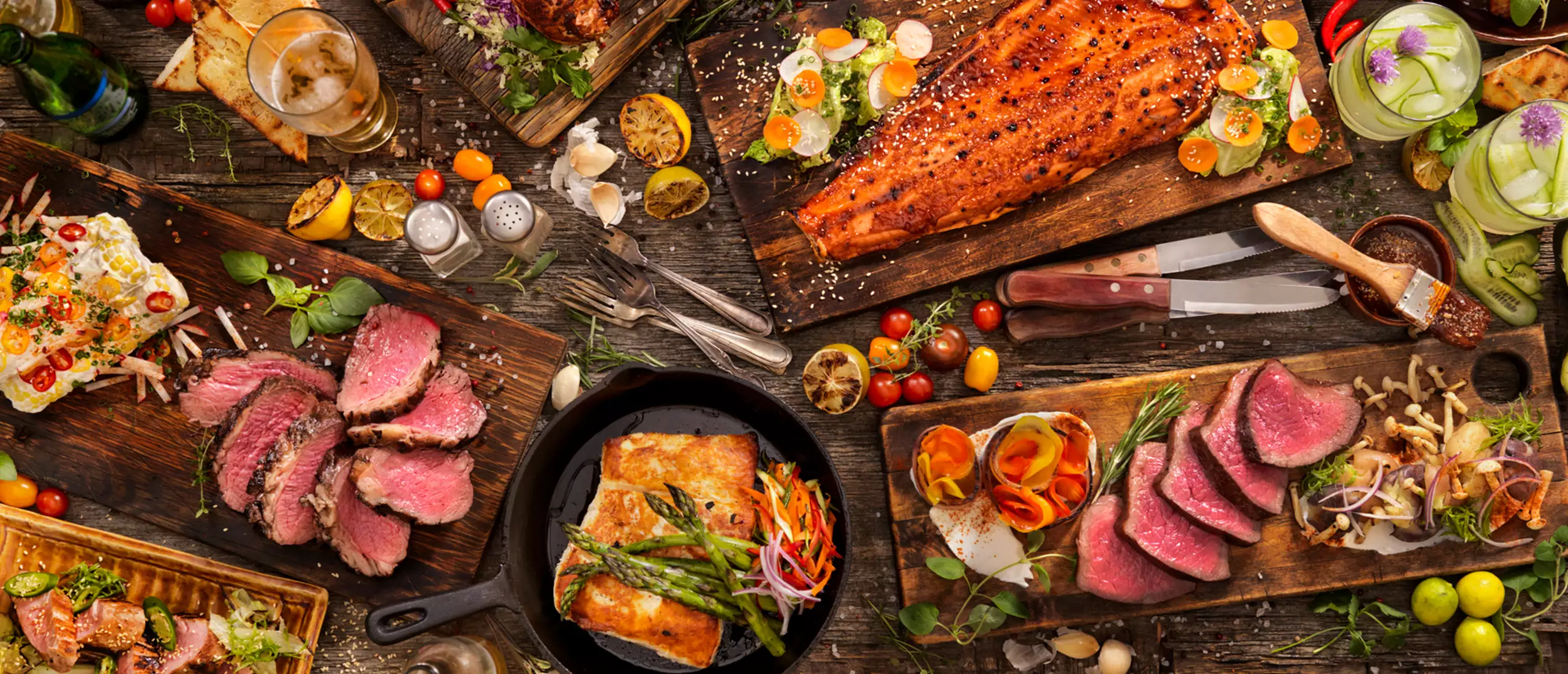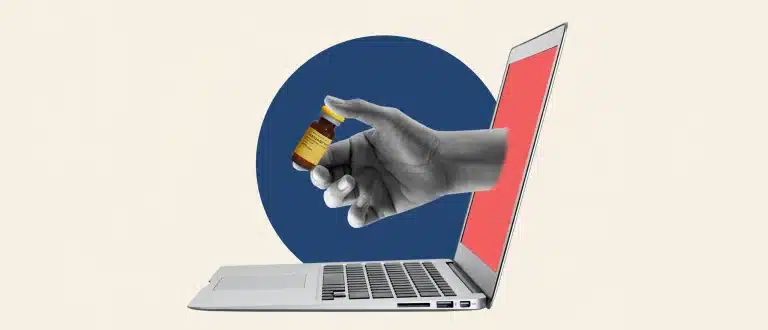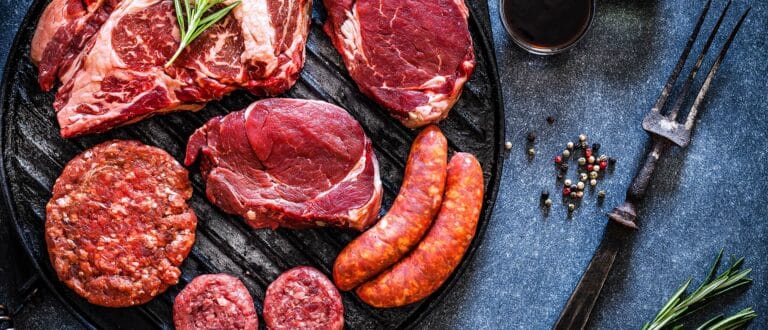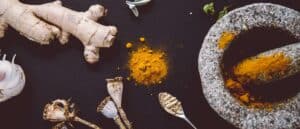14 Foods That May Boost Testosterone Naturally
You probably think of testosterone as “the sex hormone.” But testosterone plays a number of vital roles in your body, from helping to maintain muscle and bone growth to boosting energy. Which is why keep your levels at the right level is optimal for good health. One easy way to do that: eat enough of the foods that boost testosterone, and limit the amount of foods that can lower it.
But let’s back up for a minute and talk about T. In addition to boosting bones, muscle, and energy, testosterone is also responsible for:
- producing red blood cells
- producing sperm
- maintaining normal brain function
- distributing body fat
- helping facial and body hair to grow
That’s quite a checklist for any one hormone to handle. And that’s why it’s so important you do everything you can to ensure your testosterone continues performing as efficiently as possible.
Men who are experiencing a significant, clinical decline in normal T levels—called hypogonadism—often find hormone replacement therapy (HRT) can reduce symptoms of low testosterone.
But there are also natural testosterone boosters, and a diet filled with the necessary nutrients that feed our testosterone can also help keep your T levels high.
What foods increase testosterone? Glad you asked. When you look at the science, these are some of the best testosterone-boosting foods:
- Oysters
- Ginger
- Egg yolks
- Leafy green vegetables
- Red meat
- Extra virgin olive oil
- Fortified cereals
- Fatty fish
- Pomegranates
- Bananas
- Grapes
- Avocados
- Dark chocolate
- Garlic and onions
Let’s take a deeper dive into each one, and talk about what makes these eats hormone-friendly.
We’ll also look at which foods can kill testosterone, so you can limit the amount in your diet, and other ways to boost testosterone naturally.
14 Testosterone-Boosting Foods
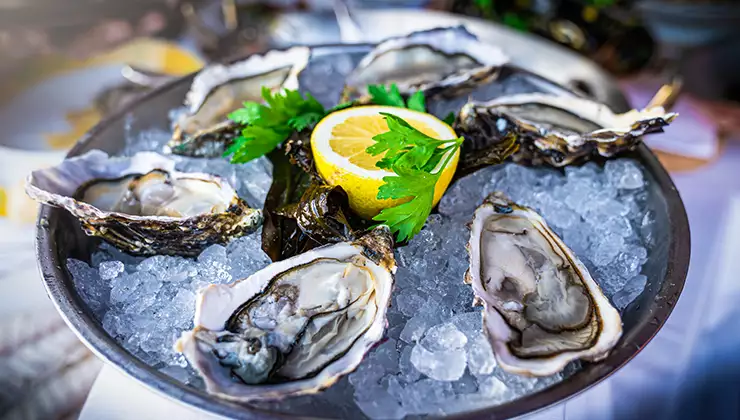
1. Oysters
The magnificent mollusks are loaded with vitamins B12 and D, selenium, copper, manganese and omega-3 fatty acids. Plus, no other food beats an oyster when it comes to containing zinc, one of testosterone’s most important allies.
Zinc is a nutrient that our bodies need but can’t naturally produce. It can bolster our immune system, increase healthy insulin production, support healthy protein and DNA synthesis, reduce the risk of age-related macular degeneration, and reinforce normal senses of taste and smell.
Researchers have proven that zinc can also help boost testosterone levels (1) as well as improve sperm quality and fertility (2).
A single, 3-oz. serving of cooked, breaded, and fried oysters offers up over 74 milligrams of zinc—over 673 percent of the average daily value.(3) It’s no wonder that oysters are regarded as the king of aphrodisiacs since their high zinc content is also essential for managing levels of dopamine (4), a hormone that increases our cognitive function, memory, and libido.
Oysters aren’t the only shellfish that can make a positive difference in our hormone levels. The crustacean kind (including shrimp, lobster, crab) and oysters’ fellow mollusks (such as mussels, clams, scallops, and octopi) also provide zinc and other nutrients that more earn their way up the testosterone boosting food chain.
2. Ginger
Ginger’s main ingredient is gingerol, a pungent phenolic compound that fuels ginger’s medicinal mojo. The spice is also rich with antioxidants that can help combat oxidative stress (5), which is often associated with guys with low testosterone levels.
One published study observed how a group of 75 infertile men, after taking a ginger supplement for three months, experienced a 17 percent increase in their T levels (6). Another documented analysis of how ginger can improve testicular size and function (7) which in turn could bolster sperm quantity and quality.
Add in its many other potential health benefits — among them, reducing inflammation and cholesterol levels, digestive issues, and severe joint stiffness — ginger is a food that belongs in your kitchen.
Hone’s at-home testosterone assessment is so easy you can knock it out before your AM coffee.
Right now you can save $15 on your test, which comes with a free physician consultation.
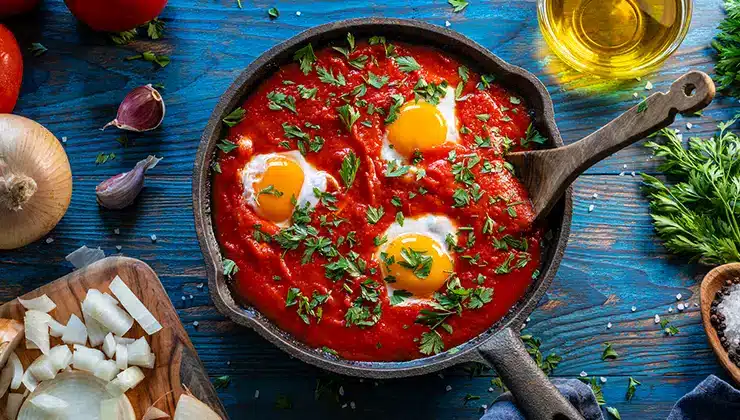
3. Egg yolks
The medical community had long believed eggs weren’t all that great, since they’re high in saturated fat and cholesterol. That philosophy has changed over the past 20 years, however, and egg yolks have earned a spot among the healthiest existing food choices.
Egg yolks offer the majority of nutrients found in an egg, including proteins and carotenoids like lutein and zeaxanthin, which can promote vision and cognitive health.
Plus, they’re stacked with Vitamins A, B, E and, of course, D.
Remember how cholesterol in eggs used to be frowned upon? It turns out much of that cholesterol synthesizes into vitamin D and hormones, including your testosterone (8). Provided you don’t have any pre-existing cholesterol issues, there’s no reason why you can’t enjoy an egg or two each day.
4. Leafy green vegetables
Leafy green vegetables—including spinach, Swiss chard, kale and Romaine lettuce—are dietary dynamos, packed with folate, potassium, fiber, iron, calcium, and vitamins A and E.
As for how leafy greens boost your testosterone, they offer plenty of ways.
Emerald edibles like kale and collard greens lead the pack in vitamin K content. Vitamin K can promote bone health, protect against osteoporosis (9) and keep body inflammation down, which helps keep your T levels up.
Spinach and Swiss chard are among the leafy leaders of minerals like boron and magnesium.
One study reported improved free testosterone levels (10) within a week of taking boron supplements.
Another observed increases in total and free T (11) after both sedentary and athletic volunteers took magnesium supplements over a four-week period.
5. Red Meat
Wait, isn’t this testosterone-killing food? It’s true that a 2020 study (12) reported a “Western” diet consisting of fried foods, processed snacks, high fat, and red meat could cause adverse effects on men’s T levels and sperm count.
But it’s also true that there are certain cuts of lean beef that, when consumed in moderation, can actually increase your testosterone.
Though medical experts point out valid concerns that overconsumption can elevate potential risks of cardiovascular disease and colorectal cancer, they also point out that red meat is a very valuable source of protein, iron, and B12, among many other nutrients you need.
Beef liver, for example, is stacked with vitamin D. A 2018 study (13) focusing on supplementing male volunteers with the vitamin showed bolstered testosterone and sexual function.
Red meat, especially steak, also contains leucine, (14) an amino acid that’s valuable in the development, repair, and maintenance of bone and muscle tissue.
Let’s not forget zinc, which you’ll find plenty of within cuts of chuck roast and ground beef. Still don’t believe zinc doesn’t play an important role in keeping your hormones balanced? One study reported nearly a 75 percent decrease (15) in male volunteers’ T levels after 20 weeks of following a zinc-restricted diet.
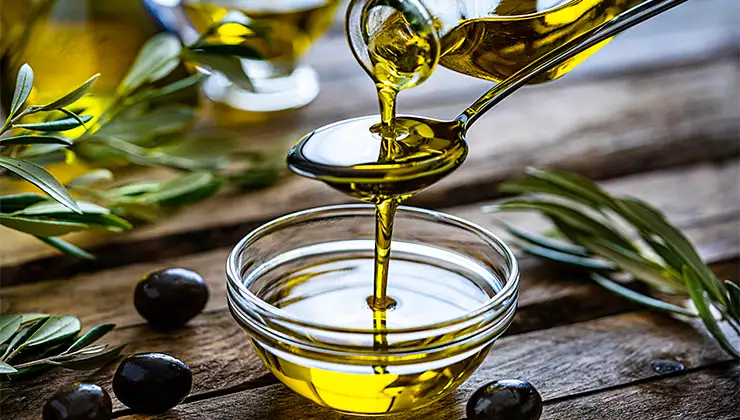
6. Extra Virgin Olive Oil
Whereas olive oils are processed and lose most of their nutrients, extra virgin olive oil keeps them intact. Good thing, too—EEVO is filled with polyphenols (16), micronutrients packed with antioxidants that can combat heart disease, cancers, inflammation, and oxidative stress. Research often correlates those latter two ailments with reduced testosterone levels in males.
EEVO is mostly composed of monounsaturated fatty acids. Among several other benefits, “MUFAs” can reduce LDL (bad) cholesterol and elevate HDL (good) cholesterol, which we need to convert to testosterone.
One study reported that dietary oils like EEVO helped increase their levels of testosterone by over 17 percent (17), and their Luteinizing hormone by almost 43 percent.
7. Fortified Cereals
When a cereal is fortified it means missing minerals and vitamins have been manually added in order to provide nutritional value.
Fortified cereals are sometimes disparaged because they can run high in carbs and added sugar. But many fortified cereals offer greater levels of nutrients than their natural, whole cereal counterparts.
Take those much-maligned carbs, for example. Our bodies need them so they can partially convert into energy for our muscles.
One study told researchers that high-carb foods (18) such as fortified cereals, generated higher testosterone levels in their male test subjects. Furthermore, these foods also reduced their levels of cortisol, the “stress hormone.”
Many cereals can help boost energy because they’re fortified with B vitamins. This includes vitamin B9, also known as folic acid, which is key to the formation and growth of red blood cells (19).
Many cereals are also fortified with iron, calcium, magnesium, zinc, and vitamins A, C and D. That last vitamin is noteworthy, since a study (20) revealed concentrations of serum vitamin D were positive predictors of total testosterone.
According to the National Institutes of Health (21), fortified foods provide most of the vitamin D in American diets.
8. Fatty Fish
Both the American Heart Association and the U.S. Department of Agriculture recommend having two to three servings of fish or seafood a week.
We suggest cold-water fatty fish like tuna, salmon, mackerel, sardines, herring, and trout. Besides their quality mineral content, they’re packed with long-chain omega-3s and polyunsaturated fatty acids that are great for your body several ways, including in your production of testosterone.
The two omega-3s within fatty fish are eicosapentaenoic acid (EPA) and docosahexaenoic acid (DHA). They’re great for maintaining and improving heart health (22), and a 2019 article reported their potential effectiveness in treating mood disorders (23).
Additional research reveals that DHA can improve men’s sperm quality and production (24).
If you aren’t much of a seafood lover, you can also take omega-3 or DHA-enriched fish oil supplements. Male volunteers taking fish oil in one trial saw an increase in their total testosterone levels (25).
If you do enjoy a good fish, though, just keep an eye on your weekly intake; oily fish, as healthy as they can be, also contain some pollutants that can build up in the body.
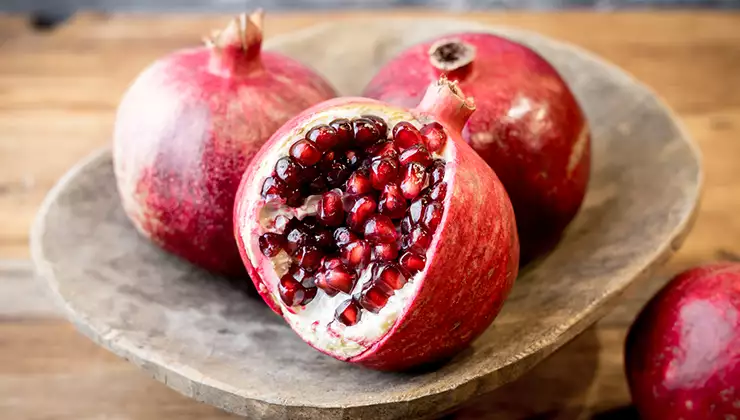
9. Pomegranates
As far as fruit-bearing shrubs go, the pomegranate can do wonders. Its rich seed content has long symbolized prosperity, community, or fertility in multiple cultures and faiths. Science and medicine, meanwhile, have also seen the light on pomegranates’ nutritional benefits.
Pomegranates contain more than 60 hydrolyzable tannins, many of which account for the fruit’s antioxidant power. As such, pomegranates can help reduce stress as well as the risk of cardiovascular disease, combat viruses, and bacteria (26), and suppress inflammatory arthritis (27).
They can also have very potent testosterone-boosting capabilities, according to researchers. One study saw pomegranate users enjoy an average 24 percent uptick in T levels (28).
10. Bananas
One question that’s frequently asked is whether or not bananas can lower your testosterone. The answer is clear and backed by science: Bananas don’t lower your T levels; they can actually raise them.
Several of the fruit’s key nutrients and vitamins are major testosterone boosters.
One study established how bananas’ chief nutrient, potassium (29) can promote testosterone production and firmer erections. Pyridoxine, more commonly known as vitamin B6 (30), also offers an abundance of benefits, including the release of androgens, which in turn can increase your T production.
Bananas also contain magnesium (11) the benefits of which we explained under leafy green vegetables. And your sex drive will appreciate the boost it can receive from bananas’ content of bromelain (31) and tryptophan (32), which can also improve your mood and cognitive function by increasing your secretion of serotonin.
Honestly, the only thing that may be better for your testosterone than having a banana is having a ripe banana, since the ripening can actually increase their nutrient levels.
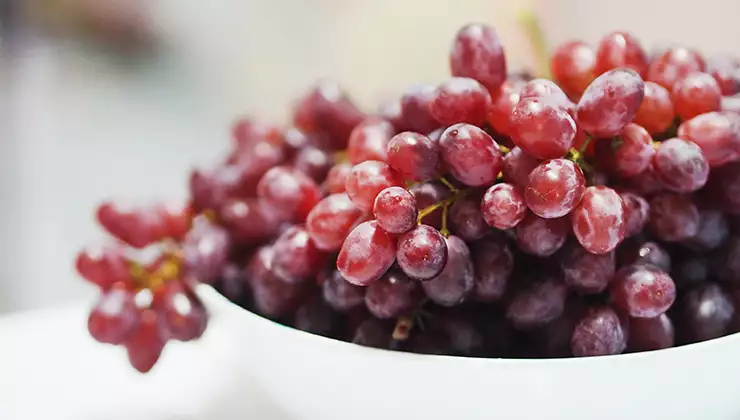
11. Grapes
Grape skins are rich in resveratrol, a compound that has antioxidant and anti-inflammatory properties.
In one study, researchers found that the equivalent of 500mg—about the amount in 5-10g of grape skins– raised T-levels and improved sperm motility (33).
Resveratrol may also prevent the aromatization of testosterone to estrogen.
12. Avocado
The guac-maker is another ace source of magnesium and healthy fats that have been linked to increased testosterone.
Avocados also contain boron, a mineral that may benefit testosterone levels. Research on boron’s ability to jack up T levels is mixed, but in one study, boron was found to influence testosterone metabolism and protect against T degradation (34). Boron is also found in raisins, peaches, peanuts, broccoli, and other apples.
13. Dark Chocolate
Cocoa products like dark chocolate and cocoa powder are also high in magnesium, but that’s not the only thing that gives them T-boosting cred. Cocoa is also high in flavonoid antioxidants, plant compounds that have powerful antioxidant and anti-inflammatory effects.
One study found that flavonoids found in cocoa products, like quercetin and apigenin, may help increase the production of testosterone (35). More research is needed but consider this permission to scarf the occasional Snickers.
14. Garlic and Onions
Not only do both bulbous vegetables add complexity to easy-to-make meals, but research suggests they can also help give your T levels a boost, as well. For instance, one study consisting of rats found that garlic supplementation, when paired with a high-protein diet, helped increase testosterone production in the testes (36).
As for the connection between onions and testosterone, the most notable study on the matter was primarily conducted on rats. However, the findings indicate that both onion and onion extract has a positive effect on testosterone levels. This in part, may be due to the fact that onions provide ample antioxidants (which can help protect against disease) and supports the production of luteinizing hormone (LH), which is critical for producing testosterone (37, 38, 39)
Hone’s at-home testosterone assessment is so easy you can knock it out before your AM coffee.
Right now you can save $15 on your test, which comes with a free physician consultation.
Foods to Avoid
Just as there are foods that can be great for your hormones, there are some that can be downright harmful. The worst offenders include:
Packaged and processed foods
Among the biggest testosterone-killing foods are those that have been processed, meaning they’ve been canned, cooked, frozen, packaged, or had their nutritional content altered or removed.
Processing foods may enhance their taste or give them a longer shelf life, but it can come at a great cost to your body.
Processed foods are filled with trans fats, which multiple studies have associated with inflammation, cardiovascular disease, decreased HDL (good) cholesterol and elevated LDL (bad) cholesterol, type 2 diabetes, low testosterone, and decreased fertility (40).
How they’re packaged or canned also matters—to protect the food, they’re lined with bisphenol A (BPA), a chemical that’s used to create plastics and resins. One study (41), however, found that males exposed to high concentrations of BPA over a six-month period saw a decrease in their free testosterone and an increase in their levels of sex hormone-binding globulin.
Alcohol
Alcohol is another major testosterone killer, as it can adversely affect your hypothalamus, pituitary gland, and testes (42). Even worse, the effects can be dose-dependent (43)—the more you drink, the more your testosterone and sperm production is likely to suffer.
Sadly, there are plenty of other foods that can lower your T levels. Check out our list of testosterone-killing foods to see what to cut out of your diet.
Other Ways To Naturally Boost Testosterone
Focusing on foods that can help bolster your hormone performance is a great move, but it’s not your only move. If your levels are clinically low, you may want to consider the option of testosterone replacement therapy.
However, there are other ways you can naturally improve your testosterone, beyond eating foods that boost testosterone.
1. Minimize stress
It may be easier said than done, but teaching yourself ways to relax more can also teach your adrenal glands not to overproduce and release cortisol into your bloodstream.
Studies show that over time, too much of the stress hormone blocks other bodily functions (44) that aren’t considered “fight-or-flight” worthy, including testosterone production.
Minimizing your stress levels can go a long way toward maximizing your T levels. Breathing exercises, meditation, and yoga can all help dial down stress.
2. Get quality sleep
As a society, we just don’t sleep enough, but the results of a 2014 study (45) proved particularly troubling for men who sleep five hours or less a night.
Testosterone levels tend to increase at the onset of sleep and peak during REM (rapid eye movement). Work in at least one extra hour of sleep every night, and your hormones may feel a lot more energized in the morning.
3. Avoid estrogenic-like foods
Our list of testosterone-killing foods includes a few that fit this description. Various grains, nuts, seeds, vegetables, herbs, and liquids contain high amounts of phytoestrogens, plant-based compounds that can mimic estrogen functionality. That can be great for women, but disastrous for men; according to some studies, estrogen-like foods can suppress the release of other hormones needed to synthesize testosterone, and even compromise fertility (46).
4. Don’t use drugs
There’s always a risk that drugs, whether medicinal or recreational, can negatively impact your testosterone. Those that are medically prescribed, like opioids, statins, or beta-blockers, is one thing, and it’s something you can discuss with your physician if you worry about how they may interact with your hormones.
Recreational drug abuse, though, is something you can and should avoid, especially since studies support (47) how much of a factor they can play into Low T and fertility issues.
5. Lose weight
Researchers have established that being overweight or obese is one of the primary causes of low T in men. Studies have also shown that losing weight can result in naturally gaining back some testosterone (48).
A great way to shed some unwanted pounds is not to “go on a diet”—which is often perceived as a temporary measure—but rather, to change up your daily dietary lifestyle. It’s a big change, but one that can benefit you greatly in the long run.
And skip intermittent fasting (IF) if boosting T is your only goal. While IF has benefits, raising testosterone levels isn’t one of them.
6. Exercise more and build muscle
Diet and exercise go hand-in-hand. Moderate exercise can positively impact so much in your body; it can elevate testosterone and semen levels (49), as well as improve brain function, self-esteem, and mood (50). If you’re looking for the most effective type of exercise for men with low testosterone, we’ve got a whole article on that.
7. Try natural supplements
There are many nutrients that your body needs but can’t produce naturally, or at least not in high enough quantities. We’ve mentioned a few among our testosterone boosting foods — including vitamins B, C and D, zinc, magnesium, and omega-3 fatty acids — but there’s quite the list. Studies show that natural supplements like ashwagandha (51), shilajit (52), fenugreek (53), and Mucuna extract (54) are terrific sources of numerous health benefits, not the least of which is giving your T levels a much-welcomed lift.
Hone’s at-home testosterone assessment is so easy you can knock it out before your AM coffee.
Right now you can save $15 on your test, which comes with a free physician consultation.
References
1. Prasad AS, Mantzoros CS, Beck FW, Hess JW, Brewer GJ. Zinc status and serum testosterone levels of healthy adults.
2. Fallah A, Mohammad-Hasani A, Colagar AH. Zinc is an Essential Element for Male Fertility: A Review of Zn Roles in Men’s Health, Germination, Sperm Quality, and Fertilization.
3. Zinc fact sheet for health professionals. National Institutes of Health.
4. Dissanayake D, Wijesinghe PS, Ratnasooriya WD, Wimalasena S. Effects of zinc supplementation on sexual behavior of male rats.
5. Mashhadi NS, Ghiasvand R, Askari G, Hariri M, Darvishi L, Mofid MR. Anti-oxidative and anti-inflammatory effects of ginger in health and physical activity: review of current evidence.
6. Mares WAA, Najam WS. The effect of Ginger on semen parameters and serum FSH, LH & testosterone of infertile men.
7. Hosseini J, Mardi Mamaghani A, Hosseinifar H, Sadighi Gilani MA, Dadkhah F, Sepidarkish M. The influence of ginger (Zingiber officinale) on human sperm quality and DNA fragmentation: A double-blind randomized clinical trial.
7. Huff T, Boyd B, Jialal I. Physiology, Cholesterol. [Updated 2021 Mar 2]. In: StatPearls [Internet]. Treasure Island (FL): StatPearls Publishing; 2021 Jan-. Available from: https://www.ncbi.nlm.nih.gov/books/NBK470561/
8. Pearson DA. Bone health and osteoporosis: the role of vitamin K and potential antagonism by anticoagulants.
9. Naghii MR, Mofid M, Asgari AR, Hedayati M, Daneshpour MS. Comparative effects of daily and weekly boron supplementation on plasma steroid hormones and proinflammatory cytokines.
10. Cinar V, Polat Y, Baltaci AK, Mogulkoc R. Effects of magnesium supplementation on testosterone levels of athletes and sedentary subjects at rest and after exhaustion.
11. Nassan FL, Jensen TK, Priskorn L, Halldorsson TI, Chavarro JE, Jørgensen N. Association of Dietary Patterns With Testicular Function in Young Danish Men.
12. Tirabassi G, Sudano M, Salvio G, Cutini M, Muscogiuri G, Corona G, Balercia G. Vitamin D and Male Sexual Function: A Transversal and Longitudinal Study.
13. Pedroso JA, Zampieri TT, Donato J Jr. Reviewing the Effects of L-Leucine Supplementation in the Regulation of Food Intake, Energy Balance, and Glucose Homeostasis.
14. Prasad AS, Mantzoros CS, Beck FW, Hess JW, Brewer GJ. Zinc status and serum testosterone levels of healthy adults. Nutrition.
15. Tapiero H, Tew KD, Ba GN, Mathé G. Polyphenols: do they play a role in the prevention of human pathologies?
16. Derouiche A, Jafri A, Driouch I, El Khasmi M, Adlouni A, Benajiba N, Bamou Y, Saile R, Benouhoud M. Effect of argan and olive oil consumption on the hormonal profile of androgens among healthy adult Moroccan men.
17. Anderson KE, Rosner W, Khan MS, New MI, Pang SY, Wissel PS, Kappas A. Diet-hormone interactions: protein/carbohydrate ratio alters reciprocally the plasma levels of testosterone and cortisol and their respective binding globulins in man.
18. Merrell BJ, McMurry JP. Folic Acid. [Updated 2021 May 4]. In: StatPearls [Internet].
19. Wentz, Laurel & CB, Berry-Caban & JD, Eldred & Q, Wu. (2015). Vitamin D Correlation with Testosterone Concentration in US Army Special Operations Personnel.
20. Vitamin D fact sheet for health professionals. National Institutes of Health.
21. Schwalfenberg G. Omega-3 fatty acids: their beneficial role in cardiovascular health. https://www.ncbi.nlm.nih.gov/pmc/articles/PMC6683166/
22. G. D’Aniello, S. Ronsini, T. Notari, N. Grieco, V. Infante, N. D’Angel, F. Mascia, M. Fiore, G. Fisher and A. D’Aniello, “D-Aspartate, a Key Element for the Improvement of Sperm Quality,”
23. Abbott K, Burrows TL, Acharya S, Thota RN, Garg ML. Dietary supplementation with docosahexaenoic acid rich fish oil increases circulating levels of testosterone in overweight and obese men.
24. Dong G, Liu H, Yu X, Zhang X, Lu H, Zhou T, Cao J. Antimicrobial and anti-biofilm activity of tannic acid against Staphylococcus aureus.
25. Shukla M, Gupta K, Rasheed Z, Khan KA, Haqqi TM. Consumption of hydrolyzable tannins-rich pomegranate extract suppresses inflammation and joint damage in rheumatoid arthritis.
26. Smail, Nacer & Al-Dujaili, Emad. (2012). Pomegranate juice intake enhances salivary testosterone levels and improves mood and well being in healthy men and women.
27. Sánchez-Capelo A, Cremades A, Tejada F, Fuentes T, Peñafiel R. Potassium regulates plasma testosterone and renal ornithine decarboxylase in mice.
28. Symes EK, Bender DA, Bowden JF, Coulson WF. Increased target tissue uptake of, and sensitivity to, testosterone in the vitamin B6 deficient rat. J Steroid Biochem.
29. Shing CM, Chong S, Driller MW, Fell JW. Acute protease supplementation effects on muscle damage and recovery across consecutive days of cycle racing.
30. Hulsken S, Märtin A, Mohajeri MH, Homberg JR. Food-derived serotonergic modulators: effects on mood and cognition.
31. Chavarro JE, Mínguez-Alarcón L, Mendiola J, Cutillas-Tolín A, López-Espín JJ, Torres-Cantero AM. Trans fatty acid intake is inversely related to total sperm count in young healthy men.
32. Zhou Q, Miao M, Ran M, Ding L, Bai L, Wu T, Yuan W, Gao E, Wang J, Li G, Li DK. Serum bisphenol-A concentration and sex hormone levels in men.
33. Shin S, Jeon JH, Park D, Jang MJ, Choi JH, Choi BH, Joo SS, Nahm SS, Kim JC, Kim YB. trans-Resveratrol relaxes the corpus cavernosum ex vivo and enhances testosterone levels and sperm quality in vivo.
34. Pizzorno L. Nothing Boring About Boron.
35. Martin LJ, Touaibia M. Improvement of Testicular Steroidogenesis Using Flavonoids and Isoflavonoids for Prevention of Late-Onset Male Hypogonadism. Antioxidants
36. Oi Yuriko. Garlic Supplementation Increases Testicular Testosterone and Decreases Plasma Corticosterone in Rats Fed a High Protein Diet.
37. Saleem Ali Banihani. Testosterone in Males as Enhanced by Onion (Allium Cepa L.)
38. Cleveland Clinic. Luteinizing Hormone.
39. MedlinePlus. Luteinizing Hormone (LH) Levels Test.
40. Chavarro JE, Mínguez-Alarcón L, Mendiola J, Cutillas-Tolín A, López-Espín JJ, Torres-Cantero AM. Trans fatty acid intake is inversely related to total sperm count in young healthy men.
41. Zhou Q, Miao M, Ran M, Ding L, Bai L, Wu T, Yuan W, Gao E, Wang J, Li G, Li DK. Serum bisphenol-A concentration and sex hormone levels in men.
42. Emanuele MA, Emanuele N. Alcohol and the male reproductive system.
43. Duca Y, Aversa A, Condorelli RA, Calogero AE, La Vignera S. Substance Abuse and Male Hypogonadism.
44. Mehta PH, Josephs RA. Testosterone and cortisol jointly regulate dominance: evidence for a dual-hormone hypothesis.
45. Wittert G. The relationship between sleep disorders and testosterone in men.
46. Patisaul HB, Jefferson W. The pros and cons of phytoestrogens. Front Neuroendocrinol.
47. Duca Y, Aversa A, Condorelli RA, Calogero AE, La Vignera S. Substance Abuse and Male Hypogonadism.
48. Fui MN, Dupuis P, Grossmann M. Lowered testosterone in male obesity: mechanisms, morbidity and management.
49. Lalinde-Acevedo PC, Mayorga-Torres BJM, Agarwal A, du Plessis SS, Ahmad G, Cadavid ÁP, Cardona Maya WD. Physically Active Men Show Better Semen Parameters than Their Sedentary Counterparts.
50. Sharma A, Madaan V, Petty FD. Exercise for mental health.
51. Lopresti AL, Drummond PD, Smith SJ. A Randomized, Double-Blind, Placebo-Controlled, Crossover Study Examining the Hormonal and Vitality Effects of Ashwagandha ( Withania somnifera) in Aging, Overweight Males.
52. Pandit S, Biswas S, Jana U, De RK, Mukhopadhyay SC, Biswas TK. Clinical evaluation of purified Shilajit on testosterone levels in healthy volunteers.
53. Maheshwari A, Verma N, Swaroop A, Bagchi M, Preuss HG, Tiwari K, Bagchi D. Efficacy of FurosapTM, a novel Trigonella foenum-graecum seed extract, in Enhancing Testosterone Level and Improving Sperm Profile in Male Volunteers.
54. Shukla KK, Mahdi AA, Ahmad MK, Jaiswar SP, Shankwar SN, Tiwari SC. Mucuna pruriens Reduces Stress and Improves the Quality of Semen in Infertile Men.



